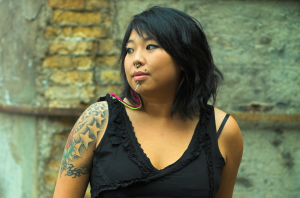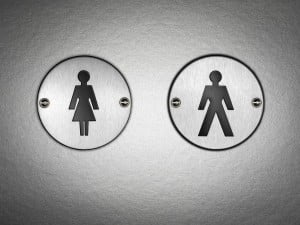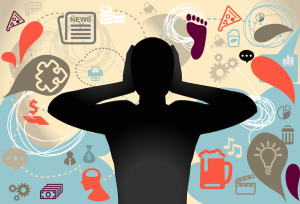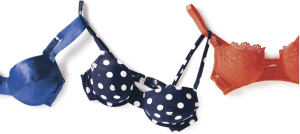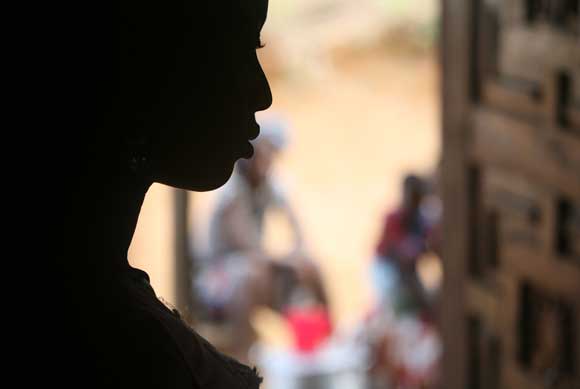
Credit: Plan International
(Trigger Warning: Domestic violence)
A few years ago, I was in a two year relationship with a boy who acted violently towards me. His abuse cannot only relate heavily to what authors like James Gilligan in “Shame, Guilt and Violence” and bell hooks in The Will to Change: Men, Masculinity, and Love wrote about but it can also be explained by them.
He was the product of an abusive household – one that involved drugs and a father who strongly reinforced the ideals of patriarchy onto him and also admittedly did not want him.
All these factors went into socializing and creating this person, shaping his ideas about life and love, continually decreasing his senses of compassion for others, chipping away at his happiness and health.
His father and his mother were both drug addicts, and he was sent to live with his grandmother. His father, when around, would be very mean to him, physically abusive, and instill the ideas into him that he not show emotion or cry for he would become weaker than he already was.
He used the concept of shaming, explained by Gilligan, in putting him down even at a very young age, bluntly telling him he did not want him or love him, and assuring him how much of a nuisance he was.
This pushed the boy to create his ‘mask of bravado’ and also to use violence on others to ‘prove his masculinity.’ When he was older, his father would make him do drug runs, driving underage to go pick up cocaine for him.
His father made him do drugs because that is what made him ‘a real man’. His father was also a womanizer and did not show respect to women, teaching on those ideals to his son.
Two years before we began dating, his father quit seeing him and speaking to him altogether. Much like patriarchy, his father had given him false hopes.
He had done all he could to please his father, to get his approval, just like men do with patriarchy.
And his father let him down.
Just like patriarchy in human form, his approval was not granted. Even though he had sacrificed himself, his emotions, his compassion, his humanity – all in trying to achieve something he never could.
I became his girlfriend rather quickly and it was my first serious relationship. I have read before that it takes about three months for someone to show ‘their true colors’ and be who they really are around you regarding a relationship.
This theory held true, but for me, he became a different person in less than 2 months. I noticed he had a destructive temper, did not show respect to his mother or grandmother, and he also used cocaine regularly.
I was not into drugs and was also not very aware of the dangers of cocaine. I am proud to say I have never used that drug, for I have seen the many awful effects of it.
It was made clear he was an addict from early on, though I was naïve, young, and thought he could change. His story of childhood did not become clear to me right away, but rather through hearing different stories over time.
He first struck me about three months into the relationship when we were in his car. He was driving and we got into a heated argument. He backhanded me across the head, and I was silenced instantly.
He quickly apologized but blamed me, saying if I hadn’t made him so angry, he would have never had to do that.
He was shaming me, much like his father had done to him.
I was in too much shock to have a decent reaction and sat there quietly until we arrived at our destination.
I do remember thinking about that saying, ‘if he hits you once, he WILL do it again’, and I knew in my heart at that moment I wanted out of the relationship.
But it was not that easy. He was very manipulative, controlling, and often threatened suicide if I left him.
In bursts of rage, he would cry and hit himself while begging me to not leave, promising to change, and really making me believe that I should not give up on him.
I believed he could change, and I wanted to be the woman to save him. This idea in my head can be related to the gender norms of women, for we are supposed to be caring, nurturing and motherly.
And that is exactly what I began to feel like – his mother.
His real mother was hardly around, still facing her addictions with cocaine and other drugs. She would be very nice and try to be loving to him when she was around, but he did not care for it.
bell hooks explains that because his mother let him down at such an early age, it affected his behavior towards women at a later one. As she says, “Usually adult males who are unable to make emotional connections with the women they choose to be intimate with are frozen in time, unable to allow themselves to love for fear that the loved one will abandon them.”
He had major trust issues with me and he also did a good job of making me feel as though I would be the mother abandoning a child if I left the relationship.
Because of the combined actions of his parents, he would have needed to have some sort of help to get him to reject almost everything they had taught him. He never received any help, never went to any psychologists or clinics for his drug addictions, and never once was able to reject ideas of violence or emotional abuse.
hooks explains that because of patriarchy, his first acts of violence were to himself, ‘killing off the emotional part of himself’ and thus making violence easier to act on others, for he lost his compassion and empathy and would force shame upon his victims.
His ideas of love were completely tainted and destroyed. It was a concept he did not understand and had never truly experienced before. As hooks describes, “They simply do not get that love and abuse cannot go together- teaching men to understand that women and children do not feel loved when they are being abused is one of the primary goals of groups that work to end male violence.”
Just like hooks explained, he did not put anything good into the relationship. Instead he fed his hunger for power, being dominant over me, making me weaker and below him, and at the same time needing me around just so he could do that.
He needed me to be what he could shame and put his force over. For if I was not there, then there may have been someone with power over him.
And then he would be at the bottom of the patriarchal totem pole.
I believe people need to stop teaching and saying to young girls that when a boy bullies them, it means that the boy likes them. I found a great deal of comfort in reading bell hooks’ book and only wish I had it when I was in dire need of help during this abusive two year period.
Because I had been shamed, I did not want to turn to anyone for help, for as Gilligan explains, admitting to being shamed is shameful in itself because “there is not death like social death.”
The teachings of both hooks and Gilligan have helped me to not only be grateful that I was able to come out of the abusive relationship alive but also that I was able to commit and allow myself to truly love again and put trust in another man (my fiancé).
I am also thankful that their lessons helped me to get over it. I can better understand that period in my life as well as that person, and what compelled their actions of emotional abuse and physical violence toward me – all because of what I have learned from not only these teachings but also other lectures in the Women’s Studies courses offered at my college.
Most importantly, the wise words and lessons of hooks and Gilligan gave me the reassurance that no, his actions were not my fault, something that I must admit I struggled with during and for a time after the relationship.
I believe the book, The Will to Change, needs to be recommended to any girl or woman who is in an abusive relationship or knows someone who is. I believe it should be available at group meetings and shelters for battered women and taught in more than just women’s studies courses.
I believe that men need to read the book and see how hurtful and false the promise of patriarchy is for them. I want them to know that to be “a man”, you don’t have to repress your feelings and prove your “masculinity” by being violent and dominating towards other people.
Because of bell hooks’ advice, information and similar experience that she shares in the book, I was able to have a deeper healing within myself.
It is such a relief knowing I am not the only woman out there who has been through this.
And if sharing my story helps someone in need – anyone in need regardless of gender, race, class, or sexual orientation – then I have done my part and am happy that I shared it.
Search our 3000+ articles!
Read our articles about:
Our online racial justice training
Used by hundreds of universities, non-profits, and businesses.
Click to learn more






